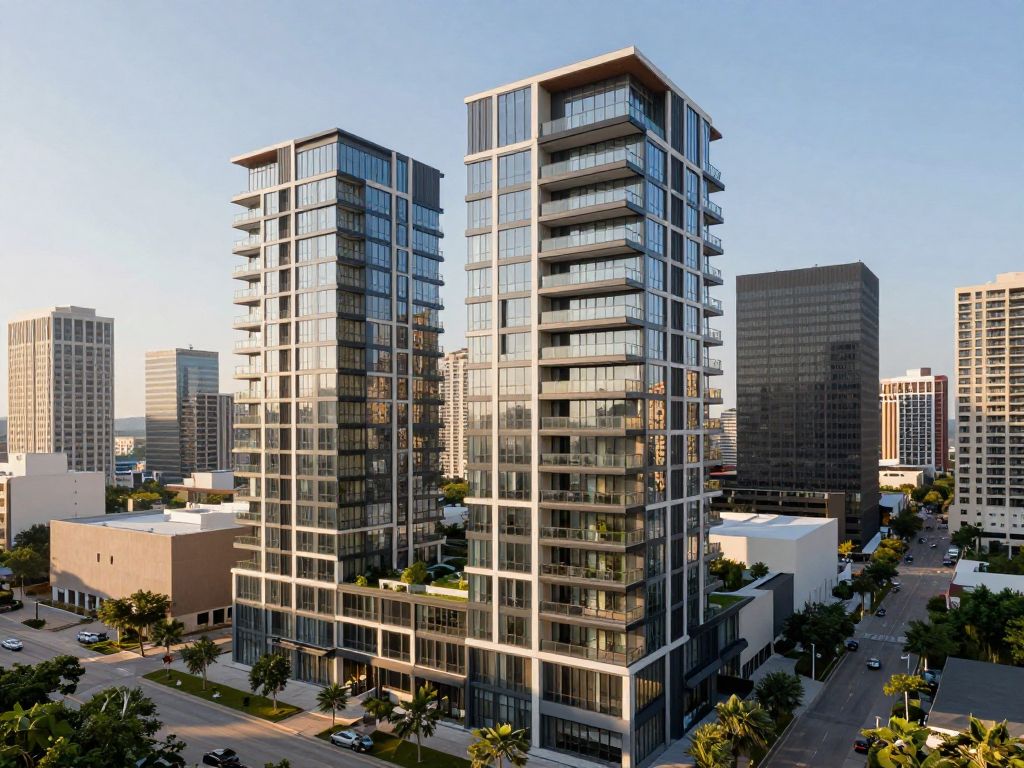How to Successfully Attend Your First Open House: Essential Tips for First-Time Buyers
Introduction
Attending an open house marks a vital milestone in the home buying process, especially for first-time buyers. It provides an indispensable opportunity to view properties up close, assess their physical condition, and gauge whether they meet your needs. Approaching this event with strategic preparation and informed observation dramatically increases your chances of making a confident and suitable purchase decision.
Before the Open House
1. Define Your Priorities
Establish clear criteria before visiting. List your must-have features—such as number of bedrooms, proximity to essential locations, or specific amenities. Equally important is recognizing deal-breakers, like certain structural characteristics or property size limitations. Maintaining this focused approach ensures your evaluation remains objective and prevents being distracted by superficial details that do not align with your long-term goals.
2. Secure Mortgage Pre-Approval
Obtaining pre-approval streamlines your home search by establishing a realistic budget. It also signals seriousness and credibility to sellers. This step involves submitting financial documentation to a lender who, upon approval, provides a pre-qualification letter. Possessing this document can facilitate quicker negotiations and gives you confidence in your financial capacity during property visits.
3. Prepare Essential Tools
Bring well-organized tools for documenting insights, such as a notebook and pen. If allowed, carry a camera to take visual records for later comparison. Additionally, a tape measure can assist in verifying room dimensions, and a flashlight helps inspect less illuminated areas like basements or closets. Vertical organization of your notes enhances clarity and aids decision-making post-visit.
During the Open House
1. Conduct a Thorough Inspection
Evaluate the property’s condition systematically. Look for signs of structural issues—cracks, water stains, uneven floors. Test the appliances and plumbing fixtures for functionality. Check for potential repairs that might incur costs, such as damaged fixtures, outdated wiring, or signs of mold. Focus on major issues that could become substantial investments over time.
2. Engage with the Listing Agent
Use the opportunity to ask targeted questions. Proven questions include this: “What motivated the seller?” and “How long has the property been on the market?” Seek details about recent upgrades, neighborhood dynamics, and local amenities. An informed conversation can reveal discrepancies or affirmations about the property’s value and potential concerns.
3. Observe the Neighborhood
The surroundings significantly influence your living experience. *Assess* the neighborhood’s ambiance, noise levels, and safety. Check for nearby grocery stores, public transportation, or healthcare facilities. Note traffic patterns, street lighting, and community activity. These factors are crucial in determining if the location fits your lifestyle and long-term plans.
4. Visualize Your Future Home
Imagine placing your furniture and belongings in the space. Consider if the layout is functional for your daily routines. Think about potential modifications or renovations you might undertake. This mental simulation helps identify whether the property can comfortably accommodate your needs, preventing future regrets.
After the Open House
1. Review Your Notes and Photos
Consolidate all observations into a coherent review. Compare properties you’ve visited to identify strengths and weaknesses. Focus on critical aspects like location, price, condition, and potential for appreciation. An organized analysis supports a rational decision-making process.
2. Follow Up with the Listing Agent
If interested, contact the listing agent for further insights or to arrange a private showing. Asking follow-up questions about offer procedures and additional property details demonstrates serious intent. It can also provide leverage for negotiating terms that favor your interests.
3. Consult Your Real Estate Agent
Discuss your findings and impressions with your real estate agent. They bring professional expertise on market value, negotiation strategies, and potential pitfalls. Leveraging their insights ensures that your next steps are well-informed and aligned with your homeownership ambitions.
Common Pitfalls to Avoid
1. Overlooking Minor Issues
Be cautious not to dismiss minor cosmetic imperfections—such as paint or carpeting issues—they can be easily remedied. Instead, prioritize properties with structural integrity and minimal major repairs. Overlooking serious problems could lead to costly surprises post-purchase.
2. Disclosing Too Much Information
Maintain discretion about your budget and interest level. Revealing too much during discussions can influence negotiations negatively. Keep your position reserved until you have a clear understanding of the property’s value and your leverage.
3. Ignoring the Bigger Picture
Focus on the property’s overall suitability. Avoid getting fixated on minor aesthetic details while neglecting the location or size. Assess whether the property aligns with your long-term goals, potential for appreciation, and community environment.
Conclusion
Attending an open house offers invaluable insights into your prospective home. Through careful preparation, attentive observation during the visit, and thorough post-visit evaluation, you position yourself for a successful purchase. Employ these strategic tips to navigate the process confidently and make determinations grounded in fact rather than assumption.
Frequently Asked Questions (FAQ)
What should I bring to an open house?
Bring a notebook, pen, tape measure, flashlight, and, if permitted, a camera to document your observations and measurements.
How do I prepare for an open house?
Define your priorities, secure mortgage pre-approval, and research the property and neighborhood beforehand to ask relevant questions and focus your evaluation.
What questions should I ask the listing agent?
Ask about the seller’s motivation, time on the market, recent renovations, and details regarding the neighborhood and local amenities.
How can I assess the property’s condition?
Look for structural issues, test appliances and plumbing, and note signs of wear or damage. Consider hiring a professional inspector for comprehensive assessment.
What should I do after attending an open house?
Review your notes and photos, follow up with the listing agent, and consult your real estate agent for further guidance on next steps.
Overview of Key Aspects for Successful Open House Attendance
| Aspect | Core Focus | Benefit |
|---|---|---|
| Preparation | Define priorities, secure pre-approval, pack tools | Maximizes efficiency and effectiveness during property visits |
| Inspection | Assess structural integrity, functionality of appliances | Identifies major issues early, saving costly repairs |
| Engagement | Ask strategic questions, observe neighborhood | Gathers vital insights essential for informed decisions |
| Post-Visit | Organize notes, follow up, consult professionals | Supports rational evaluation and strategic next steps |
Author: STAFF HERE HOUSTON TX WRITER
The HOUSTON STAFF WRITER represents the experienced team at HEREHouston.com, your go-to source for actionable local news and information in Houston, Harris County, and beyond. Specializing in "news you can use," we cover essential topics like product reviews for personal and business needs, local business directories, politics, real estate trends, neighborhood insights, and state news affecting the area—with deep expertise drawn from years of dedicated reporting and strong community input, including local press releases and business updates. We deliver top reporting on high-value events such as Houston Livestock Show and Rodeo, Art Car Parade, and Chevron Houston Marathon. Our coverage extends to key organizations like the Greater Houston Partnership and Houston Area Urban League, plus leading businesses in energy and healthcare that power the local economy such as ExxonMobil, Schlumberger, and Houston Methodist. As part of the broader HERE network, including HEREAustinTX.com, HERECollegeStation.com, HEREDallas.com, and HERESanAntonio.com, we provide comprehensive, credible insights into Texas's dynamic landscape.





